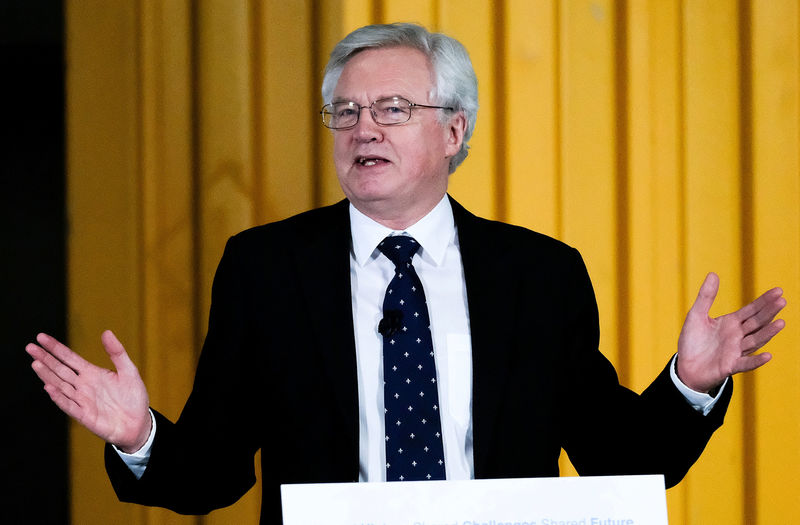By Peter Maushagen and Alastair Macdonald
BRUSSELS (Reuters) - British Brexit negotiators are expected to launch fortnightly rounds of talks in Brussels from as early as next week with the aim of agreeing a swift deal on a transition period, EU diplomats said on Friday.
Brexit Secretary David Davis said in a speech outlining his view of a post-Brexit transition that was close to the status quo proposed by the EU that he expected to start talks in the coming "days and weeks".
The EU negotiating team led by Michel Barnier will, EU sources said, be ready to receive Davis and his officials for formal negotiations on what will happen after Britain leaves in March 2019 once EU ministers formally endorse Barnier's binding instructions at a meeting in Brussels on Monday.
A first meeting could be held as soon as the latter part of next week, they said.
While no schedule for those talks has been formally agreed, EU diplomats said the plan for now is to set a relatively fast pace of exchanges, meeting in Brussels every two weeks in contrast to the roughly monthly round of negotiations held in the first phase of the process last year.
Davis said that, because there was broad agreement already, he was confident of reaching an interim accord on the transition by the time EU leaders hold a Brussels summit on March 22-23.
That will not be legally binding -- details of the transition will form part of a withdrawal treaty which will be agreed only by around October and legally ratified by parliaments on both sides only in the months after that.
However, both sides hope that a joint declaration on the nature of the transition in March can give businesses and people some more certainty to make decisions about their future.
The EU has proposed that Britain effectively remain in all of its existing structures, including the single market and customs union, until the end of 2020 while losing its say on EU policy. Prime Minister Theresa May appears ready to accept that, assuring disappointed Brexit supporters who say it will turn Britain into a "vassal state" that it is just for a short time.
Negotiations are likely to focus on the complexities of that status quo, including giving Britain a non-voting seat at some EU meetings, how to determine current matters like annual fishing quotas and how the EU might allow London to sign up to new trade deals with other countries while bound by EU accords.
The other 27 member states have also agreed to consider an extension to the transition period if more time is needed to conclude the free trade accord, which both sides say they want to have in place and working by January 2021.

Talks on that trade deal should start after EU leaders agree in March on new instructions for their negotiators.